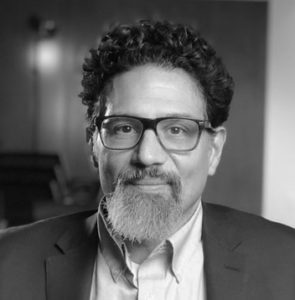The National Institute of Mental Health (NIMH) has awarded the CUNY Graduate School of Public Health and Health Policy (CUNY SPH) and the New York City Department of Health and Mental Hygiene (NYC Health Department) a thirty month grant to support long-acting injectable antiretroviral therapy access, uptake, and adherence among people with HIV enrolled in the Ryan White HIV/AIDS Program (hereafter “Ryan White”).
The APPLI study (Assessing Perceptions and Preferences around Long-acting Injectables) will be led by CUNY SPH Distinguished Professor Denis Nash and Dr. Mary Irvine, Director of the NYC Health Department’s HIV Care and Treatment Research and Evaluation Unit, in partnership with six Ryan White Part A-funded medical case management provider agencies in New York City and the Tri-County area, which includes Westchester, Putnam, and Rockland counties.
This project aligns with the “Treatment” pillar from the U.S. Department of Health and Human Services Ending the HIV Epidemic (EHE) initiative and with two of the National Institutes of Health’s priorities: reducing health disparities and implementation research on new HIV treatments. Although HIV treatment advances have improved health and survival for people living with HIV in New York, racial/ethnic, age-related, geographic, and other disparities in viral suppression remain.
“Long-acting injectable antiretroviral therapies are a potential game-changer for people living with HIV who have struggled with adherence to daily oral medication regimens,” said Nash, Executive Director of the CUNY Institute for Implementation Science in Population Health (CUNY ISPH).
In January 2021, the United States Food and Drug Administration approved one long-acting antiretroviral injectable drug combination (Cabenuva), currently limited to people with HIV who are already virally suppressed. Moreover, clinical trials of the regimen that demonstrated efficacy only included people who were stable on daily oral antiretroviral therapy regimens, and not those who struggle with adherence and thus may benefit most from the new treatment modality. Anticipating expansion of eligibility to include more people living with HIV, the APPLI study will use routine reporting on clients and services, and both qualitative data collection and discrete choice experiments, to understand drivers of engagement in various antiretroviral therapy delivery and adherence support strategies in New York’s Ryan White Part A medical case management programs. Based on this formative work, the study team and provider partners (both clinical and non-clinical) will pilot service strategies to integrate long-acting injectables as a treatment option, and explore how best to support adherence, and ultimately EHE impact, in real-world Ryan White HIV care settings.
“We really don’t yet know how feasible or acceptable this may be as an option, both to the clients and their providers,” says Nash. “But it is critically important to find out quickly, to optimize the public health impact of these advances.”
Findings from this timely study will be relevant to the equitable, effective, and sustainable advancement of the next generation of therapeutic interventions capable of improving HIV care among people living with HIV who have been unable to achieve viral suppression using previously available therapies.
About the Institute for Implementation Science in Population Health at the City University of New York The CUNY Institute for Implementation Science in Population Health (ISPH) was founded on the notion that substantial improvements in population health can be efficiently achieved through better implementation of existing strategies, policies, and interventions across multiple sectors. We study how to translate and scale up evidence-based interventions and policies within clinical and community settings in order to improve population health and reduce health disparities. CUNY ISPH. Pursuing population health gains through better implementation. www.cunyisph.org. Follow us on Twitter: @CUNYISPH and @epi_dude.
About the CUNY Graduate School of Public Health and Health Policy The CUNY Graduate School of Public Health and Health Policy (CUNY SPH) is committed to teaching, research and service that creates a healthier New York City and helps promote equitable, efficient and evidence-based solutions to pressing health problems facing cities around the world. For more information, visit sph.cuny.edu. Follow us at @CUNYSPH.

